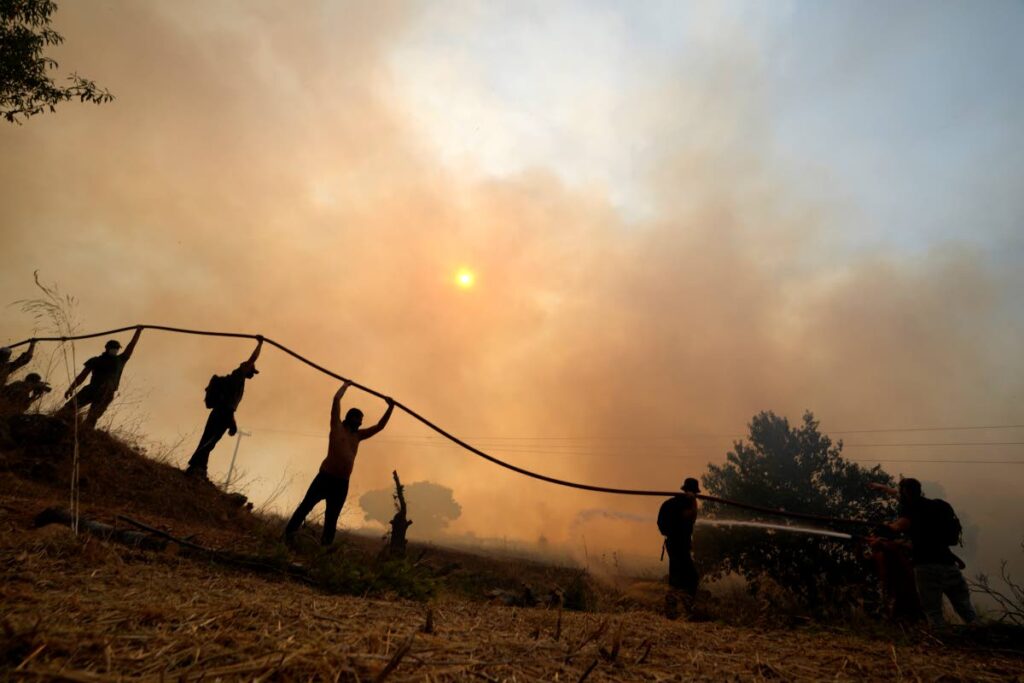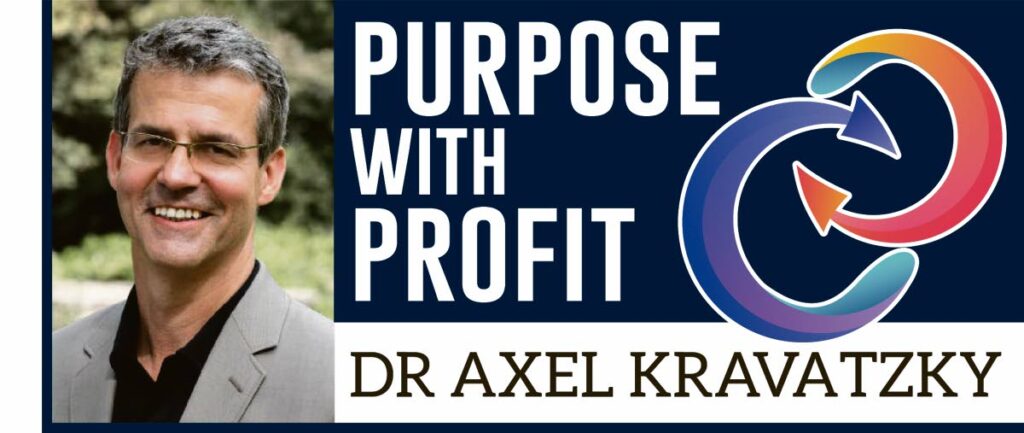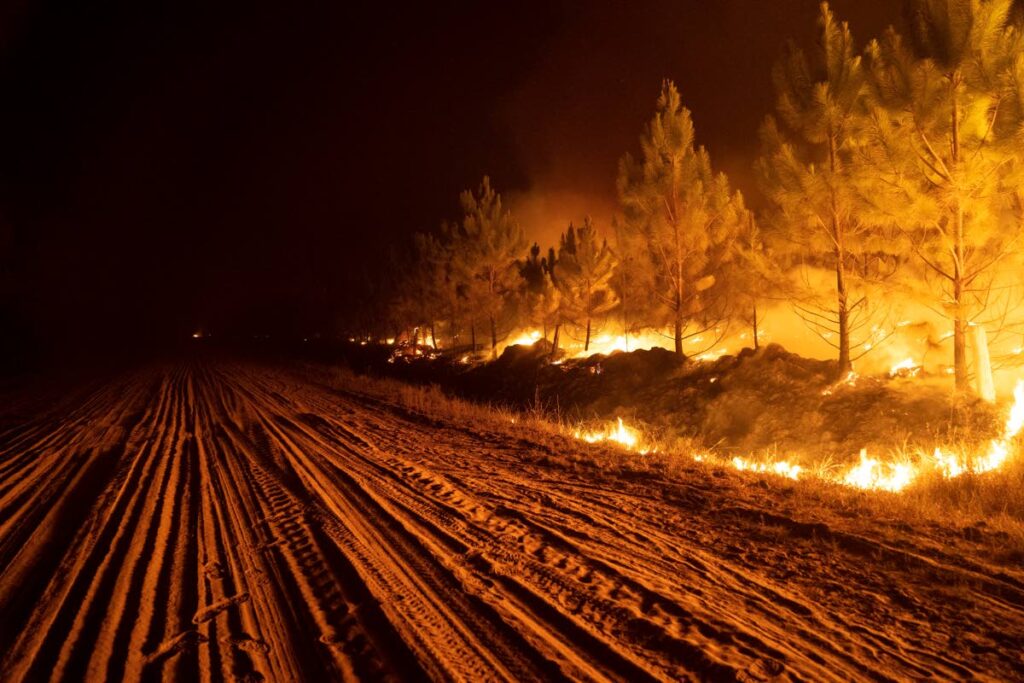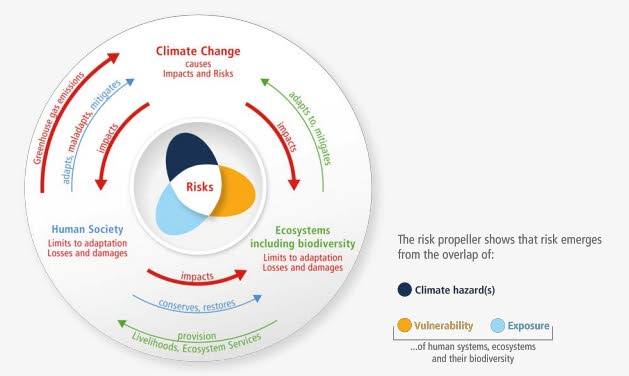Our home is on fire


Many of the challenges we face today overlap. As global temperatures increase even by fractions of a degree – say, from today 1.1C to 1.5C by 2030, risks will increase, and important species and ecosystems are very likely to disappear already. Suppose we fail in accelerating mitigation and adaptation. In that case, we will stay on the current path, and the temperature will rise by about 3C above pre-industrial levels. In such a case, impacts are expected to be multiple times – ten times – worse.
“Science tells us that will require the world to cut emissions by 45 per cent by 2030 and achieve net-zero emissions by 2050. But according to current commitments, global emissions are set to increase almost 14 per cent over the current decade. That spells catastrophe. It will destroy any chance of keeping 1.5 alive.”
This is from the remarks of the UN secretary general, António Guterres, at the press conference on the launch of the report by Working Group II, on Impacts. Adaptation and Vulnerability, as part of the Sixth Assessment Report by the Intergovernmental Panel on Climate Change (IPCC) on February 28.
Mr Guterres describes the newly released IPCC report as an “atlas of human suffering.” Why? Because according to the report, half of the world’s population already live in hotspots of high vulnerability to climate change. The well-being of these people is already being severely affected. The report lays out how this will increase under various temperature scenarios and regions of the world – including the Caribbean.
Mr Guterres continues: “The facts are undeniable. This abdication of leadership is criminal. The world’s biggest polluters are guilty of arson of our only home.”
Scientists from 67 countries, 270 authors (amongst whom five are from UWI), have reviewed more than 34,000 scientific papers, resolved 62,418 review comments from experts and governments, and then signed off collectively on the findings that were released on Monday. In August 2021, the science panel published the first part of the series, which will constitute the Sixth Assessment Report. That report was on the latest climate science and projections for future warming, branded “code red” by Guterres.

At first sight, the size of the report is as overwhelming as the findings! Over 3,675 pages, there is a clear and stark message: climate change is already affecting human well-being and the health of the planet at 1.1C warming – and this will escalate by a lot to when we reach 1.5C and then a lot more when we reach 3C, which is our current trajectory. The time window available to secure a liveable future is brief and closing rapidly.
Small island states
Currently available evidence enables scientists to detect increases in temperature with very high confidence levels, a larger proportion of intense tropical cyclones, storm surges, droughts, changing rain patterns, sea-level rise, coral bleaching, and a rise in invasive species.
In the next 30 years, sea-levels are projected to rise by 15-40 cm. “Above 1.5C, globally inclusive of small islands, it is projected there will be further loss of 70-90 per cent of reef-building corals, with 99 per cent of corals being lost under warming of 2C or more above the pre-industrial period.”
While the need for investment in capacity building and adaptation strategies is most urgent in Small Island Developing States (SIDS), barriers and constraints faced include governance arrangements, financial resources, human resource capacities, and the lack of baseline climate modelling data.
Climate resilience
We have reached the stage where it is not enough to focus on mitigation by reducing greenhouse gas emissions. That is still necessary but not sufficient. We need to spend at least as much on adaption – particularly in small island developing states. Effective adaptation contributes to economic and ecological values, and it improves well-being.
The report offers a solutions framework that enables us to make decisions towards a climate-resilient form of development. Climate resilience is characterised by high resilience and low risk because it consists of:
• Adaptation to reduce climate risks
• Mitigation to reduce greenhouse gases
• Enhancement of biodiversity
• Achievement of the sustainable development goals (SDGs)
What should organisations do?
All actors – individuals, organisations, cities, municipalities, countries are all change agents – for better or worse. Climate resilience depends on equitable and sustainable growth and a new social compact with the planet.

To that end, here is an outline for the governing bodies of organisations to consider:
• The time for action is now – the window is limited. Boards need to overcome their inertia and support those they depend on to overcome theirs.
• Climate, adaption, ESG, sustainable development should be an agenda item at every board meeting. The topics should be discussed with the help of experts, just like boards did for covid19. Boards need to develop their competencies and close their information gap:
• How does life function on our planet?
• What are the laws of nature?
• How is the organisation, its services and products connected with nature (from input to impact)?
• Boards should define and review the purpose and values of the organisation.
• Boards should define how the organisation generates value in an integrated and sustainable manner, with associated parameters that need to be adhered to and strategic outcomes to be achieved within specific time frames.
• Establish the current baseline for the organisation and then how much the organisation itself has to change and by when to achieve the required impacts within the required timelines to contribute to sustainable development.
• Based on this assessment, the organisation can develop strategic ESG approaches to lead. The IPCC report provides an overview of relevant data, risks, options, and further references concerning climate, vulnerabilities and adaptation options.
• Engage with management to develop strategies and steer the organisation:
• What problems is the organisation solving? Which SDGs is the organisation affecting, and what ambitious targets are the organisation setting?
• Develop partnerships with government, civil society, citizens, media, communities, academia, investors and other businesses.
• Develop the organisation’s decision-making competence for:
• Contribute effectively to conservation and ecosystem restoration.
• Ensure processes and outcomes are equitable and just.
• Reconcile different interests, values, and world views.
• Increase competitiveness through better business models and better solutions.
• Focus on the areas with the highest returns – protecting nature, transforming those most vulnerable and exposed population groups and places.
• Oversee and account for not only finance but all the dependencies and impacts of the organization.
The IPCC report leaves no doubt that immediate and urgent action is needed now. “Starting today, every action, every decision matters.” Are our decisions today moving us closer to or further away from a climate-resilient world?
Dr Axel Kravatzky is managing partner of Syntegra-ESG Inc, chair of TTBS/TC309 Mirror Committee, vice-chair of ISO/TC309 Governance of organizations, the co-convenor and editor of ISO 37000 Governance of organizations – Guidance. He is currently the project leader for ISO 37006 Indicators of effective governance.
Comments and feedback that further the regional dialogue are welcome at axel.kravatzky@syntegra-esg.com


Comments
"Our home is on fire"